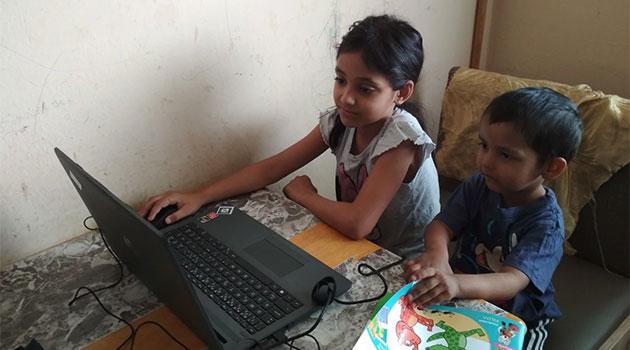Czech nonprofits find schools not in touch with one-fifth of disadvantaged parents surveyed

Of the children living in social disadvantage today in the Czech Republic, one-fifth of their parents are not in contact with their children’s schools about the current distance learning that is underway. That fact has been demonstrated by a questionnaire survey conducted by the People in Need (Člověk v tísni) organization and 15 other nonprofits in the country.
The findings also reveal that more than one-fourth of such children do not comprehend the material being taught today and just half of their teachers are providing pupils with feedback about that comprehension. One-third of parents surveyed have a problem aiding their children with homework because the material being covered is complex.
One-fourth of schools, according to this investigation, are not even asking parents whether the children enrolled have a computer at home that would be appropriate to use for online instruction. According to the head of educational services at People in Need, Zuzana Ramajzlová, the situation of disadvantaged children with respect to accessing distance instruction has improved since last spring, but differences persist among schools nevertheless.
“It depends what kind of school the children attend. The time spent on teaching, the communication method, or the degree of support provided depends directly on the specific schools and teachers,” she summarized.
The more a school offers online instruction in real time and provides children feedback, the more the children dedicate themselves to learning, according to Ramajzlová. The findings show that schools are communicating somehow with 80 % of the parents surveyed.
One-fifth of the parents, on the other hand, say they are not in contact with their children’s schools at all. Roughly half of the parents are contacted by somebody from their child’s school at least once a week, but more than one-tenth of the parents reported having been contacted by the school just once since the school year began.
The director of the Tady a teď (“Here and Now”) organization, Michaela Stehlíková, says that last spring many families were absolutely cut off from any communications with the schools whatsoever. Almost 15 % of respondents stated that they use online platforms like Bakalář (“Bachelor”) or Škola online (“Online School”), but those just serve for assigning and submitting homework and for a one-way transfer of information.
More than a quarter of respondents said they did not comprehend the material assigned to the children. “These children are living in environments where there is nobody who can handle providing them some aid with the curriculum. If they don’t get the material during instruction, they stop keeping up and begin falling behind the rest of the class,” Stehlíková said.
One-third of parents, according to the survey, have a problem helping children with their homework because the material being taught is complex. Individual consultations and tutoring should be considered.
The second most frequently mentioned problem was technology and connection to the Internet, while lack of time, lack of opportunity, and the amount and difficulty of the homework given, as well as insufficent motivation, were also mentioned as other barriers. No problems with distance learning were reported for just 5 % of the children.
The findings also reveal that most teachers are following up on the homework they assign. Four out of five do so regularly, 15 % at least sometimes, and 5 % reportedly undertake no such monitoring.
More than half of the teachers grade the homework, while one-fifth of them never do. Half of the educators provide regular feedback to these pupils, while 30 % do so only sometimes.
According to Ramajzlová, feedback from educators to pupils is exceedingly important. A quarter of the respondents said their child’s school had never asked whether the family has a sufficient setup at home in terms of technology for participating in distance learning.
If schoolchildren have no access to computers, they most frequently learn using smartphones or printed materials. One-fourth of the respondents reported being without a computer, while one-tenth said they lack a good-quality Internet connection.
Half of the families who reported having access to a computer said they were borrowing it or that it had been gifted to them. The survey was undertaken by the People in Need organization together with another 15 nonprofits in November and December 2020 among 800 clients of these particular organizations in 10 regions.
The organizations concentrated on the approach taken by primary and secondary schools towards communicating with parents about distance learning. Because of measures to combat the spread of the novel coronavirus, most pupils and students attended school in person for just a couple of weeks last year after the state of emergency was declared in the month of March.
Currently, only children attending nursery school, the first and second grades of mainstream primary school, and all grades of special school are able to attend school in person. The return of other grades to in-person learning in the schools should happen once the general conditions for constant attendance have been achieved, according to the Czech Education Minister, Robert Plaga (for ANO).
